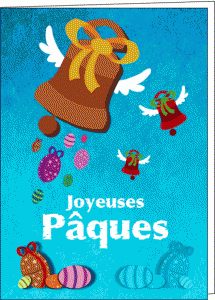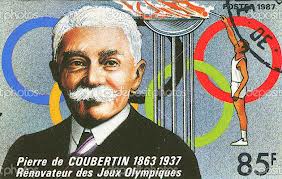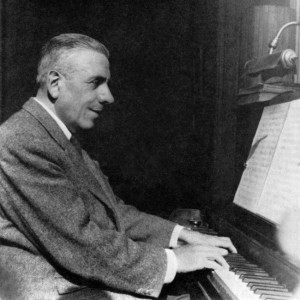Bastian Baker
13 Saturday Apr 2013
Posted in Culture, Francophonie, Music
13 Saturday Apr 2013
Posted in Culture, Francophonie, Music
01 Monday Apr 2013
 From France Travel Guide: Although the origins of April Fools is obscure and debated, the most widely accepted explanation actually credits the “holiday” as starting in France. The most popular theory about the origin of April Fool’s Day involves the French calendar reform of the sixteenth century.
From France Travel Guide: Although the origins of April Fools is obscure and debated, the most widely accepted explanation actually credits the “holiday” as starting in France. The most popular theory about the origin of April Fool’s Day involves the French calendar reform of the sixteenth century.
The theory goes like this: In 1564 King Charles XIV of France reformed the calendar, moving the start of the year from the end of March to January 1. However, in a time without trains, a reliable post system or the internet, news often traveled slow and the uneducated, lower class people in rural France were the last to hear of and accept the new calendar. Those who failed to keep up with the change or who stubbornly clung to the old calendar system and continued to celebrate the New Year during the week that fell between March 25th and April 1st, had jokes played on them. Pranksters would surreptitiously stick paper fish to their backs. The victims of this prank were thus called Poisson d’Avril, or April Fish—which, to this day, remains the French term for April Fools—and so the tradition was born.
Today in France, those who are fooled on April 1 are called the “Poisson d’Avril” (the April Fish). A common prank (especially among school-aged children) is to place a paper fish on the back of an unsuspecting person. When the paper fish is discovered, the victim is declared a “Poisson d’Avril.”
While it is not clear of the origins of fish being associated with April 1, many think the correlation is related to zodiac sign of Pisces (a fish), which falls near April. Continuez ici.
26 Tuesday Mar 2013
Posted in Culture
 Because many villages and cities across France have at least one church with a bell, it has been customary since about the 12th century to silence the bells of churches every year on Good Friday in acknowledgment of Jesus’ death. Legend has it that the bells of every church around France “fly to Rome” starting on Maundy Thursday (also known as Holy Thursday). Because the bells of every church have supposedly departed for Rome, bells in churches across France stay silenced until Easter. Then on Sunday, church bells are once again sounded and it is believed these Easter bells (les cloches de Pâques) bring with them Easter eggs, chocolates and other treats, dropping them on their passage back from Rome. Read more here.
Because many villages and cities across France have at least one church with a bell, it has been customary since about the 12th century to silence the bells of churches every year on Good Friday in acknowledgment of Jesus’ death. Legend has it that the bells of every church around France “fly to Rome” starting on Maundy Thursday (also known as Holy Thursday). Because the bells of every church have supposedly departed for Rome, bells in churches across France stay silenced until Easter. Then on Sunday, church bells are once again sounded and it is believed these Easter bells (les cloches de Pâques) bring with them Easter eggs, chocolates and other treats, dropping them on their passage back from Rome. Read more here.
26 Tuesday Mar 2013
 From the Guardian: France, once famous for its joie de vivre, is suffering from existential gloom – and the French have only themselves to blame for their malaise, according to a study to be presented in London next month. Research by a French academic to be delivered to the Royal Economic Society suggests that the country’s citizens are “taught” to be miserable by elements of their own culture. Qu’en pensez-vous?
From the Guardian: France, once famous for its joie de vivre, is suffering from existential gloom – and the French have only themselves to blame for their malaise, according to a study to be presented in London next month. Research by a French academic to be delivered to the Royal Economic Society suggests that the country’s citizens are “taught” to be miserable by elements of their own culture. Qu’en pensez-vous?
19 Tuesday Mar 2013
 From the Atlantic: To help with understanding the subjunctive, my French instructor has started giving me these “Subjonctif ou Indicatif” quizzes. The subjunctive is the terror of French students. You can go through any of my French posts and find people generally lamenting their ability to master the subjunctive. Part of the problem is that the subjunctive mood very much seems like a “mood.” In other words, as much as it carries literal information, it seems like the subjunctive also emotes. Likely other moods also emote information (hence the point in calling them moods)
From the Atlantic: To help with understanding the subjunctive, my French instructor has started giving me these “Subjonctif ou Indicatif” quizzes. The subjunctive is the terror of French students. You can go through any of my French posts and find people generally lamenting their ability to master the subjunctive. Part of the problem is that the subjunctive mood very much seems like a “mood.” In other words, as much as it carries literal information, it seems like the subjunctive also emotes. Likely other moods also emote information (hence the point in calling them moods)
As someone who began his career in poetry, and is constantly telling his kids that language must carry both emotional and literal information, I love the subjunctive. It’s like this dark, mysterious, achingly beautiful stranger. Which is different from saying I’ve mastered or I totally understand it. Mastery isn’t the point. This is language study and study–in and of itself–is rewarding. Continuez.
16 Saturday Mar 2013
Posted in Culture
 From Sports Illustrated. By Jacques Rogue, Chairman of the International Olympic Committee:
From Sports Illustrated. By Jacques Rogue, Chairman of the International Olympic Committee:
Like many people, I consider New Year’s Day to be an opportune time to reflect on the past while looking to the future.
This is especially true as Jan. 1, 2013 marks the 150th anniversary of the birth of the founder of the modern Olympic Games, Pierre de Coubertin.
Coubertin’s personal motto was “look far, speak frankly, act firmly,” but even he could not have foreseen how his vision for the Games would grow into one of the most significant cultural events in human history, affecting, in one way or another, billions of people around the world and touching almost every household on the planet.
He would, of course, be delighted to know that 118 years after establishing the International Olympic Committee (IOC), the Olympic Movement is stronger than ever. And it is safe to assume that he would have been astonished by what transpired in 2012. Continuez.
16 Saturday Mar 2013
 From NPR – January 30, 2013. Fifty years ago today, French composer Francis Poulenc had a massive heart attack in his Paris apartment and died. He was only 64, but he left us with an assortment of durable music that still sparkles with elegance today.
From NPR – January 30, 2013. Fifty years ago today, French composer Francis Poulenc had a massive heart attack in his Paris apartment and died. He was only 64, but he left us with an assortment of durable music that still sparkles with elegance today.
When music buffs talk about Poulenc, one quote inevitably pops up: “In Poulenc there is something of the monk and something of the rascal.” That line, by music critic Claude Rostand, is often repeated, but it’s worth a little investigation on the 50th anniversary of Poulenc’s death, as the sentiment resonates throughout his life and music.
I like to think there’s a little of Poulenc’s contradictory nature in all of us. A little of Walt Whitman’s blend of conflict and cockiness, as in these lines from Leaves of Grass:
Do I contradict myself?
Very well then I contradict myself,
(I am large, I contain multitudes.)
The idea that we “contain multitudes” is what makes life exciting. And Poulenc led a pretty exciting life, filled with contradictions. Looking back on his privileged childhood, he noted the influence of two seemingly opposite roots in his family tree — the devoutly Catholic strand from the south of France on his father’s side and the artistic, cosmopolitan strand from his mother’s Parisian background.
Poulenc wrote music that popped like corks from Champagne, pieces dizzy with the sounds of Parisian music halls and jazz. His 1932 Concerto for Two Pianos is a good example. The music pivots from a saucy dance complete with maracas to mock seriousness in the wink of an eye. Continuez.
16 Saturday Mar 2013
Posted in Culture
 From the Washington Post: Steve Brill’s massive Time article focused national attention on the price of health-care services in the United States. Sarah Kliff got further data showing an MRI can cost anywhere from $400 to $1,861 in Washington, DC alone. But as startling as the price difference between one hospital and another, or one insurer and another, can be in America, the difference between America and other countries is even more extraordinary. I wrote this piece in March 2012. But it’s worth revisiting now.
From the Washington Post: Steve Brill’s massive Time article focused national attention on the price of health-care services in the United States. Sarah Kliff got further data showing an MRI can cost anywhere from $400 to $1,861 in Washington, DC alone. But as startling as the price difference between one hospital and another, or one insurer and another, can be in America, the difference between America and other countries is even more extraordinary. I wrote this piece in March 2012. But it’s worth revisiting now.
There is a simple reason health care in the United States costs more than it does anywhere else: The prices are higher.
That may sound obvious. But it is, in fact, key to understanding one of the most pressing problems facing our economy. In 2009, Americans spent $7,960 per person on health care. Our neighbors in Canada spent $4,808. The Germans spent $4,218. The French, $3,978. If we had the per-person costs of any of those countries, America’s deficits would vanish. Workers would have much more money in their pockets. Our economy would grow more quickly, as our exports would be more competitive.
28 Monday Jan 2013
 From NPR: The agency charged with finding French alternatives to foreign-language terms has put an end to the word “hashtag” in France.
From NPR: The agency charged with finding French alternatives to foreign-language terms has put an end to the word “hashtag” in France.
From now on, reports Fast Company, the Générale de Terminologie et de Néologie has decided “mot-dièse” (that’s MO-dee-YEZ for those of you who are not Francophiles) is the new hashtag.
21 Monday Jan 2013
 From le Huff Post: The two most popular television shows in France at the moment, measured in tweets, are singing competitions with American counterparts. See the numbers here. What’s the English equivalent of “twittos”?
From le Huff Post: The two most popular television shows in France at the moment, measured in tweets, are singing competitions with American counterparts. See the numbers here. What’s the English equivalent of “twittos”?